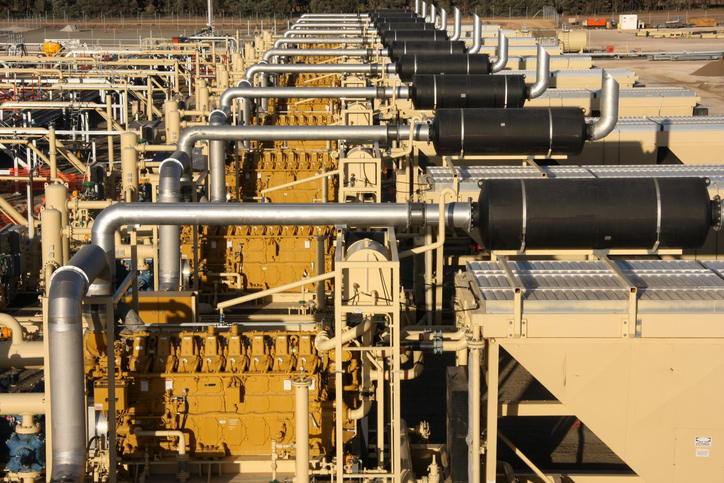Dr. Adam Dempsey teams up to eliminate methane slips from lean-burn engines used in the gas-pipeline industry.
By Tracy Staedter
Diesel-powered machines were a familiar part of Dr. Adam Dempsey’s childhood in rural Illinois, where he spent summers working for his father’s concrete business and on his uncle’s farm. He says he fell in love with the internal combustion engine at a young age. Now an assistant professor of mechanical engineering, Dempsey is investigating combustion engine developments to reduce their emissions that are harmful to human health and the environment.
In his latest project, funded with a $3.9 million grant from the U.S. Department of Energy, Dempsey and his colleagues are developing technology to eliminate methane leaks, or slips, from large natural-gas-powered engines, called lean-burn engines, used in the gas pipeline industry. Methane is the second most abundant greenhouse gas in the atmosphere next to carbon dioxide, but its potential to trap atmospheric heat is 25 to 80 times more potent than that of CO2.

Methane slip happens when gas premixed with air becomes trapped in crevices inside a lean-burn engine. When the spark plug located at the top of the engine’s combustion chamber ignites the gas-air mixture inside, the trapped gas doesn’t burn. When burned, methane becomes CO2, which is still a greenhouse gas but one that causes less damage.
Dempsey’s team proposes replacing the spark plug with a fuel injector that directly injects natural gas into the combustion chamber. It’s ignited before it has a chance to sneak into crevices.
“We are proposing that we can reduce the methane slip from these engines by about 90 percent,” Dempsey says.
That could be a major victory — half of the methane produced by human activity comes from the natural gas pipeline industry.



